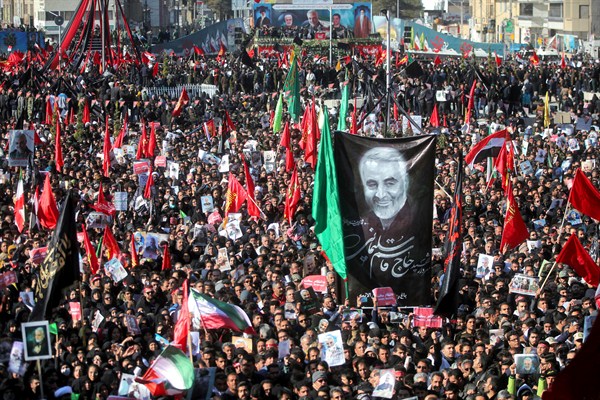Reactions in the United States to the killing of Iranian Maj. Gen. Qassem Soleimani have tended to fall into three broad categories. Those who support the strike argue that it eliminated a uniquely irreplaceable figure advancing Iran’s regional influence, while also reestablishing deterrence against Tehran. Those who oppose it fall into two groups. Some warn that by killing Soleimani, the U.S. took a step up the escalation ladder that will inevitably lead to open conflict with Iran. Others say that even short of causing all-out war, the strike was ill-advised because its strategic costs outweigh its benefits.
The first argument is almost certainly false. The second is probably exaggerated. And the third is almost certainly true. But whether killing Soleimani forestalls immediate conflict or fuels further escalation, it has locked the U.S. and Iran into a costly confrontation for the foreseeable future.
To start with the easiest part, the arguments in favor of the strike are unprovable and absurd, respectively. Soleimani was by all accounts a skilled military commander. But in both Syria and Iraq, he advanced Iranian interests with the help of structural advantages and at the head of an organization that his successor will inherit. And regardless of how adept his replacement proves to be, the network of militias and armed nonstate actors that Soleimani assembled across the region will remain a threat to U.S. interests. Iran’s regional influence could very well suffer from the loss of Soleimani, but it is hardly a foregone conclusion. More likely is that his death will not have a decisive impact one way or another.

